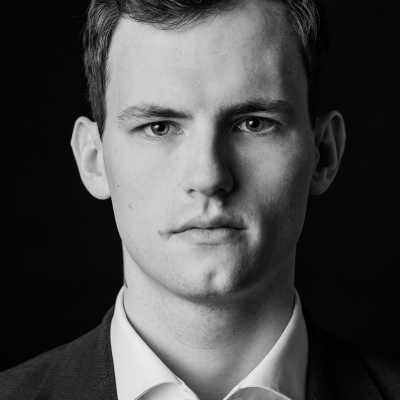In recent years, EU law has been generally the route through which Western models and ideas have been introduced into Polish law. Europe has decidedly much more to offer us, but with regard to certain legal institutions, we have to reach out for them by ourselves. One of them, which is ever more boldly knocking on our door, is a concept of trust. Will it be greeted in Poland with joy?
New reality, new solutions
More than a decade has passed from Poland’s accession to the European Union. The wide opening of doors to the West has led Poles, who have settled or invested abroad, to be increasingly willing to rely on legal solutions offered in other countries. In particular, there is increasing interest in fiduciary relationships: English legal systems’ trusts and equivalent continental institutions. In the West, they are used effectively in estate planning and organising inheritance issues.
A trust, is however, an arrangement that is alien to Polish law. As a result, doubts arise whether in a dispute, especially in inheritance matters, a court in Poland will not negate a structure,which is based on a foreign solution, for fear of its incompatibility with national law.
So far, this uncertainty has stayed within academic discourse. However, in view of the globalisation of family and professional life, we can expect that trusts will soon arrive in Polish courts, and above all, will become an attractive alternative to national methods for managing assets and arranging their succession.
Trustsworthy of confidence
A trust is a concept which indeed requires deeper attention. Its structure – normally tripartite – allows the management and disposal of possessions in such a way, that the management of assets or business can be entrusted to one person, while the current profits are accumulated or divided for the benefit of beneficiaries.
The essence of a trust involves the possibility of transferring ownership of property or its part by the person establishing the trust (settlor) to a trustee. Those assets are not included, however, within the trustee’s personal property, but become a part of the assets of the trust (a variant of dependent possession). The trustee undertakes to manage them for a purpose established by the settlor. Both the trust’s purpose and the form of management can be established freely.
It is possible to create a purpose trust (charity), and to specify individual beneficiaries, including the founders, for whom the trustee is required to act in the form describedin the trust declaration.
What is more, English legal system allows a convenient inception of a trust. As a result, a trust may be created during the lifetime of the settlor, for example, in order to improve the quality of management of assets scattered around the world, or to postpone that moment until his death (trust mortis causa) to effectively divide the assets between the inheritors.
A situation that can serve as an example illustrating the usefulness of a trust is one were a wealthy owner of a business would like his descendants to participate in the profits of his firm, while excluding them from managing it. Due to the fact that they never evinced any interest in the family business or failed to achieve an adequate education. The owner would prefer, therefore, that after his death, important decisions about the firm’s future could be undertaken by a person with adequate expertise. A trust makes this possible. In response to the demands of clients, a market has developed in specialised trust services: trust service providers offer legal advice, investment advice and professional care.
In addition, English law has developed very high standards for managing trusts. As part of management duties, a trustee must demonstrate the due care and attention that is proper for a prudent and careful entrepreneur. Those highest standards are, moreover, guaranteed by the fact that trustees are subject to judicial review, and if they violate the provisions of the trust, abuse their powers,or fail to observe standards, the court may order them to carry out specific steps, or, in extreme cases, appoint new trustees.
Englandis not the only country that allows the creation of trusts. A number of jurisdictions exist, including the United States, Cyprus, Malta and the Republic of Ireland, which have no barriers for establishing trusts. Also, in continental Europe, in Liechtenstein, Italy, Luxembourg and Switzerland, the local legal systems offer fiduciary structures of a similar nature or recognise trusts created under foreign laws, despite not containing trust institutions themselves.
Limitations
Considering the wide range of opportunities offered by trusts, it is not surprising that persons,who have been inspired by foreign law, seek to implement their ideas in Poland. Unfortunately, Polish law has very little to offer. It is futile to look for an institution that is similar to a trust, and the notion of “fiduciary” rouses connotations associated with various forms of securing loans.
Therefore, it is necessary to tap into foreign solutions. However, the creation of a trust in Poland faces a number of obstacles. One major problem facing a Polish citizen in establishing this structure is the difficulty of reconciling temporal regulations with those in force after death. Basic limitations follow from the fact that, in some areas, Polish law enforces its application to persons who hold Polish citizenship, limiting the scope of legal actions that could be the basis for dividing assets upon death. In addition, only a limited range of issues may be decided by a will.
With regard to a trust that is operating in Poland and managing real estate, securities or an enterprise, one also cannot escape certain mandatory rules of Polish law. In the area of obligations ,relations are shaped largely as a result of the will of the parties, both in terms of specific duties, as well as in the choice of law for the given relation, whereas in the three areas mentioned above there is a need to take into account, accordingly, property law, the Act on the Supervision of Capital and Financial Markets and the Commercial Companies Code.
Better than could be expected
Despite the significant obstacles in establishing a trust, in our opinion, it is not an impossible task.
First of all, most of the limitations provided for in national legislation apply to a trust set up in the event of death (mortis causa). However, there is nothing preventing establishing a trust while alive, specifying the beneficiaries as oneself and other family members. Contractual relations within the trust are to a great extent subject to the law chosen by the settlor in the trust agreement, subject to certain limitations following from the international nature of the trust. Moreover, despite the lack of confirmation in jurisprudence, it seems that the trust could remain effective even after the settlor’s death. But it must be kept in mind that the court could, in certain circumstances, consider the creation of the trust as intended to circumvent the national law. This could happen, e.g. if the deceased created it on the eve of his death (the creation of the trust could be seen as an attempt to escape from the regime of Polish inheritance law) or the trust does away with all or almost all of the settlor’s assets. An outcome would however depend on an individual assessment of the specific factual circumstances.
In addition, there is a view in Polish legal doctrine that it is even possible to create a trust in the event of death, if its provisions are tailored to the mandatory rules of inheritance. In this case, the trustee should be treated as the inheritor, and the beneficiaries as legatees (indirect or direct), depending on the nature of the benefit. This results in significant limitations and, de facto leads to an extended will. One can hope,though, that this situation will change in the future.
It could be argued that the above restrictions should not apply, if the validity of the trust agreement should be decided by a foreign court. This is because, when a foreign court examines a case with a foreign element, it applies its own conflict of laws rules. It is possible that they could specify a legal system different to Poland’s for assessing the specific case. For example, a trust with effect “in the event of death”created by a Pole living permanently in England would be evaluated under English law, because English rules of private international law are based on different factors. In essence, rather than nationality a deceased domicile or and property situs play a preponderant role.
Foreigners,who are living in Poland,will also not have problems with establishing trusts, nor will those who, for various reasons, have renounced their Polish citizenship (or never confirmed it). Polish law will not apply in relation to this group as the domestic law and, consequently, the restrictions provided for by national law will not be binding.
Undoubtedly, introduction of the EU ‘Succession’ Regulation 650/12 may also have a positive effect, as the citizenship factor for determining the applicable inheritance law will be replaced by the ‘habitual residence’ test, which may give new opportunities for many citizens living abroad.
Perspectives on the future
Trusts have a long history behind them and a bright future. However, the crucial question is whether Poland will participate in building this future. In our opinion, the management of assets through a trust or similar structure (e.g. private foundation) is a good idea, also in the realities of the Polish legal system, which generally still remains quite rigid. If properly structured, a trust can comprehensively regulate temporal property matters, and in the event of death, avoid the cumbersome legitims provided under Polish law without conflicting it.
There are many signs that Polish jurisprudence will face a choice i n the near future: either to jump aboard the speeding vehicle of trust institutions, or to remain on the sidelines, taking conservative positions. In our view, joining the global trend will bring many more benefits than risks, and the best proof of this are the experiences of other countries.
Dariusz Wasylkowski, Tomasz Krzywański, Wojciech Marszałkowski, Tax Practice and Private Client Practice, Wardyński & Partners

